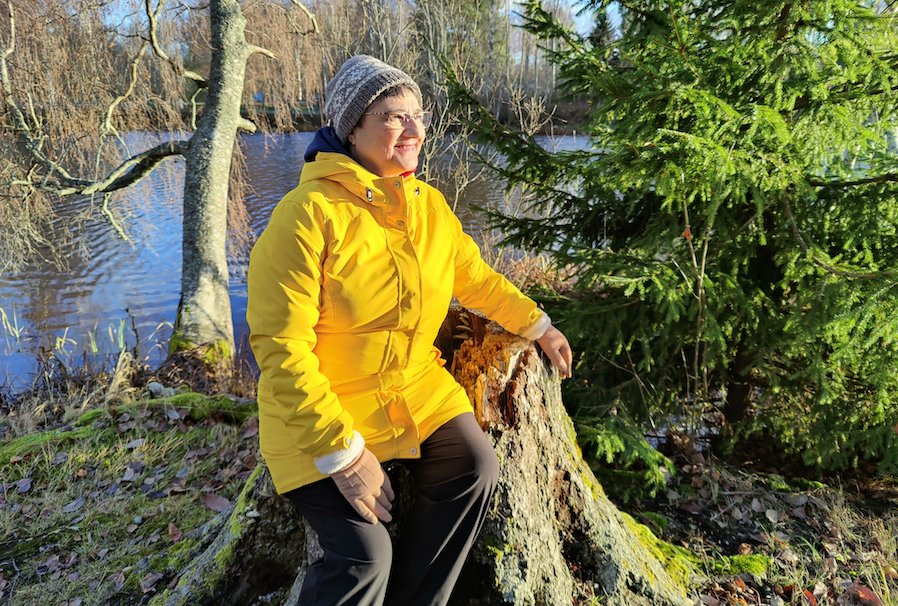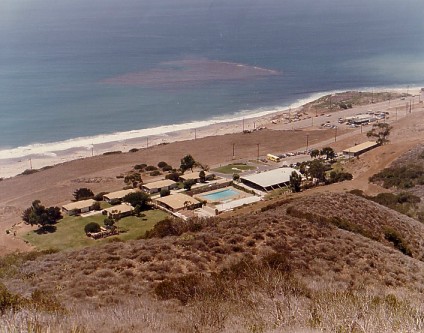
When Margaret Trotta Tuomi graduated from the LMU Bellarmine College of Liberal Arts in 1973, she began working as a counselor at Camp Joan Mier, just above Pacific Coast Highway and northwest of Malibu. It was a picturesque place where individuals with multi-disabilities resided for the summer and enjoyed traditional camp activities while making memories and friends. For Tuomi, it was an opportunity to put into practice what she had learned as a student at LMU.

“It was probably the hardest and most intense job I’ve ever had,” said Tuomi. “It was challenging both physically and emotionally as we were on duty 24-hours a day, but it was truly a way forward.”
Tuomi arrived at LMU from New York where she attended Villa Maria Academy, an all-girls high school. “The all-boys ‘partner’ high school was Fordham Prep, and my sisters went to Marymount, so I was familiar with the Ignatian model of education,” said Tuomi. “The concept of combining the Jesuit and Marymount traditions into a quality coeducational institution and, on top of that, in California, seemed ideal.”
Tuomi, who majored in sociology with minors in philosophy and theology, had memorable interactions with several professors, including Loretta Morris, emerita professor of sociology; Loretta’s husband of 52 years, Richard Morris, retired adjunct professor of philosophy; and Father Randall Roche, at the time a chaplain for students who is now director of the Center for Ignatian Spirituality. After LMU, Tuomi earned an M.A. in education from California State University, Dominguez Hills, and studied Sign Language.
Her experience at Camp Joan Mier helped Tuomi land a position as a social worker at United Cerebral Palsy, an institution where one of her campers lived. Tuomi loved the job and was promoted. Ultimately, the position would be a bridge to a new faith, a new country, and a new career.
While she was director of United Cerebral Palsy’s Independent Living Center, she met a co-worker who was a member of the Bahá’í Faith. “My initial response was to shake my head and suggest that he come to an LMU mass,” said Tuomi. “However, after understanding more, a lot of prayer and even discussion with Father Randy Roche, I decided to become a Bahá’í myself. This has been the best decision of my life.”
It is a decision that would lead Tuomi to Jyväskylä, Finland. The Bahá’í faith is the second-most widespread religion in the world as Bahá’ís often choose to travel or live in parts of the world where there are fewer Bahá’ís. While Bahá’ís don’t proselytize, or force their beliefs on others, they do believe that their teachings about peace and unity can be adopted and practiced by anyone and everyone, regardless of their background or belief system.

In Finland, Tuomi received a research grant and pursued a Ph.D. in sociology with a minor in psychology at the University of Jyväskylä. During this time, she met her husband, a Bahá’í student at the University of Helsinki. They married in 1982 and had three children.
The original topic of Tuomi’s doctoral dissertation was on the working life of the deaf in Finland. But balancing work as a tenured lecturer in English with research while raising three small children proved challenging and Tuomi put her dissertation on hold until her children started school.
Relatively few foreigners live in Finland and Tuomi’s children, though born in Finland, looked and acted different from the norm. They all experienced school harassment and Tuomi learned this was a common occurrence for children of a foreign background. The idea of children suffering for just being themselves reignited Tuomi’s interest in her dissertation and inspired her to change the topic from the working life of the deaf to “Is it possible to create a diversity-positive environment in schools and if so, what could it look like?”
“I became ‘supercharged’ with what might be called justifiable fury at the situation,” said Tuomi. “The essence of the Bahá’í Faith is the elimination of prejudice and the promotion of world peace. If this is possible on an international scale, it must be possible in an elementary school!”
Drawing from multiple disciplines including ethics, negotiations, and group theory to physics and international relations, Tuomi developed a theory over a couple years that was viable to test in schools. Her research explores techniques for prevention and intervention; focusing on the creation of just, proactive school environments that provide children with essential life skills such as group consultation, problem prevention, and resolution. She used Systems Theory and Participative Action Research to test the model with first and second graders. The initial findings were a success, and an NGO was formed in Lebanon called Partnership in Education to employ the model there. She continued to document, analyze, and refine her data and publicly defended her dissertation “Human Dignity in the Learning Environment” in 2001.
Tuomi’s research earned her the Finnish award for the United Nations Decade for Human Rights Education. She then went on to work with the Finnish National Educational Research Institute through grants from The Academy of Finland to implement her research and enrich Finnish teacher training.
Tuomi has also done extensive work to improve the education of Finnish Roma, an extremely marginalized minority group in Finnish society, as well as other immigrants and asylum seekers.
“Margaret epitomizes what an LMU liberal arts education fosters: service to the world in ways both large and small,” said Richard Morris.
Tuomi has retired from teaching at the university but continues her advocacy work on two boards: The Jyväskylä City Roma Workgroup and the Workgroup for International Jyväskylä. She is also writing a book on the history of the Bahá’í faith in Finland.
“We have global-level challenges, and we need absolutely everyone to solve these problems, every gender, race, and creed, to work together and bring their resources to the table to make better communities, a better world,” said Tuomi.



